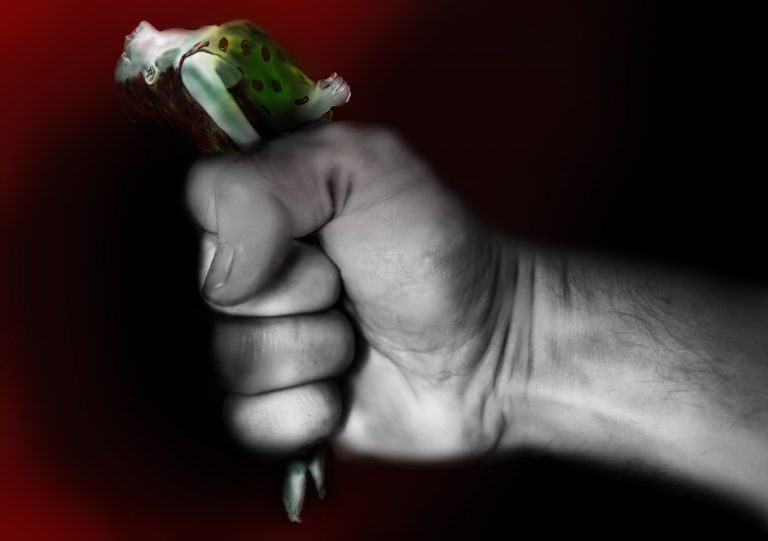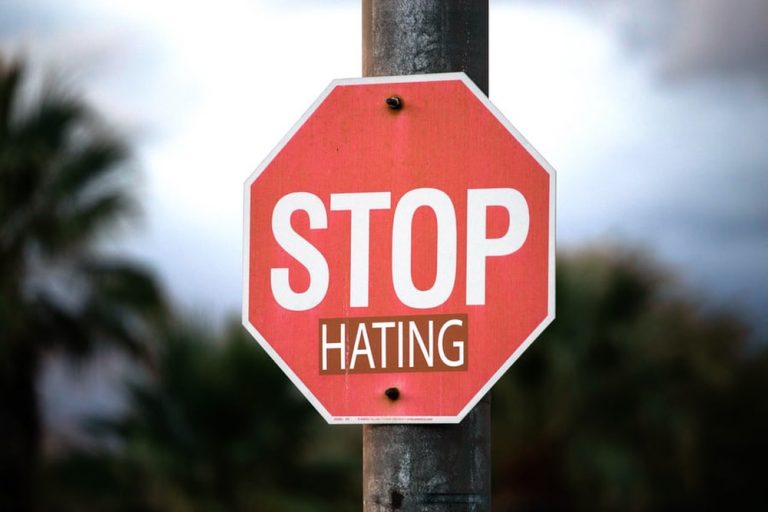Is It Jealousy or Something Else? Can you tell the difference?


By Antoine G Larosiliere
Every once in a blue when I’m in my feelings about a particular situation, I have to ask myself, Is it jealousy or something else?
We’ve all been emotional over a particular situation and not know exactly what we’re feeling. You’re overwhelmed with all these emotions, as well as confusion over what you’re feeling and what to do about it. Then you begin to wonder, is it jealousy or something else? That something else could be envy, love, hate, insecurities, abuse or controlling behavior. It could be very difficult to know since they all have some similarities to them. Let’s try to clear this up for you, so you know exactly what you’re dealing with.
Is it jealousy or something else? If it’s an emotion you feel when something we already have is threatened to be taken away by a third party; it’s jealousy. If it’s an emotion you feel when you want what someone else has; it’s not jealousy, it’s envy. It’s not insecurities because they derive from internal issues, while jealousy is triggered by external forces. Jealousy exploits our insecurities and then we project those insecurities on the people we love. It’s not abuse, although extreme jealousy can lead to abuse. It’s not being controlling; because being controlling is a character trait, but jealousy is an emotion. It’s not hate, but if you don’t address those that are jealous of you, then jealousy can turn into hate.
Let’s read further, and learn how to truly identify jealousy and understand what you’re dealing with.
“Jealousy is a complex emotion that encompasses feelings ranging from suspicion to rage, to fear, to humiliation.”

What is jealousy ?
According to psycologytoday.com “Jealousy is a complex emotion that encompasses feelings ranging from suspicion to rage, to fear, to humiliation.” Dictionary.com defined it as a mental uneasiness from suspicion or fear of rivalry, or unfaithfulness. It doesn’t matter your age, your gender or your sexual orientation; we can all experience jealousy. This feeling can occur in almost every type of human relationship; from romantic ones to working ones, even in sibling relationships. It’s an overwhelming feeling that compels us to act in ways that aren’t always in our best interest. It’s not a feeling that comes and goes on it’s own, it must be triggered by a particular situation. That situation usually involves the threat of you losing something of value to you. The threat only has to be real to the individual who perceives it. In other words, it doesn’t matter if you think they have nothing to be jealous about. Most of us have experienced some form of jealousy at some point in our lives. And truth be told, a little jealousy is normal. Extreme jealousy on the other hand, isn’t healthy and can interfere with daily life.

What does jealousy look like?
Jealousy isn’t always that easy to identify. If their energy is off, you might pick up on it, or you might not. Some people are also better than others at disguising their jealousy. If someone is jealous of you, it’s important to know what that may look like. Maybe they’re not jealous at all. But if they are, you need to know so you can properly prepare yourself. Jealous people will…
- Make insincere compliments: They will compliment you and show excitement, but you can tell it’s insincere because the smile and excitement goes away quickly or their words won’t necessarily match their body language.
- They copy you: They will at the very least imitate the particular thing they are jealous of, but more often than not; they will try to copy everything you do. They will sometimes go as far as to copy your behavior as well as your appearance.
- They gossip about you: They will make foul comments or spread rumors about you behind your back in an attempt to devalue you or your accomplishments and make themselves appear or feel superior.
- They try to out-do-you: They are overly competitive and go out of their way to steal your shine, because they feel they deserve it, not you.
- Unfairly criticize you: They criticise you every chance they get, especially in public or in front of others; even if the timing isn’t right to do so.
- They avoid events that celebrate you: They will make every excuse not to come to those events. They will avoid opportunities for you to ask them. They will lie and say they were there, but left early. They will even say they’re on their way, but never show up because they got lost or had car trouble.
- They question your ethics: They create false narratives about how you got in your position. They directly and indirectly claim you had unfair advantages or resources to discredit your achievements.
- They redirect attention you’re getting: Everytime someone begins to praise you, they’ll cut them off to mention their accomplishments. If they can’t succeed in making conversation about them, they will get an attitude.
- Kick you while you’re down: When you are struggling, they seem happier than they’ve ever been. They might try to show some sympathy for your situation but behind your back they are celebrating. They’ll even give you bad advice to keep you struggling.
- Sabotage you: Watch your back, they will try to set up your downfall. They will try to get close to you just to sabotage your projects or relationships when you’re not paying attention. They will twist your words to cause confusion and conflict, then play dumb.
- Publicly humiliate you: They will reveal anything that will embarrass or discredit you publicly or in front of others. It will often come unprovoked and random, but the intention is to remove you from glory and raise themselves up.
- Downplay your success: Everytime you accomplish something, they’ll try to reduce it with sarcastic or condescending comments. They’ll even mention other accomplishments that were more important or greater.
- They come to your events to nit-pick: If they do come to your events, it’s to find faults and point them out to others. If they compliment your efforts to your face, behind your back they’re pointing out flaws. Nothing you do will ever be good in their eyes.
- They impose double standards: They will tell their partner that he/she shouldn’t do something but turn around and do that very thing. If it’s something both partners agree with, then that is fine. But often those rules apply to only one person as a means of controlling them.
In romantic relationships jealousy will look a little different. If you are dealing with extreme jealousy from your significant other you may be subjected to…
- Unauthorized searches: Checking and snooping through your phone, email pants and shirt pockets without your permission.
Insults: Your partner will call you names because they perceive that your behavior is what is causing their discomfort. They will often also insult your friends and family members who are with you when they perceive your behavior as questionable.
False claims of attraction: Your partner will make assumptions about who you are attracted to and who you are not. They will accuse you of not being attracted to them anymore or that you never were.
Unnecessary interrogations: Your spouse or partner will constantly question you on your whereabouts weekly, daily, and sometimes even hourly.
False accusations: Your partner will often make false accusations in regards to you lying or being deceptive without any real evidence.

The effects of jealousy
Extreme jealousy has grave consequences for any relationship. It doesn’t matter if the relationship is of a romantic nature or not. Matter fact, many family bonds have been destroyed as well. Besides relationships, extreme jealousy can also cause serious emotional and physical harm. In some cases extreme jealousy has led to prison and even death. Some of the consequences to extreme jealousy includes…
- Losing what they were afraid of losing: By overwhelming the thing you’re afraid of losing with so much pressure; you often lose that very thing you were afraid of losing.
- Pushing loved ones away: All the stress, anxiety and drama usually cause loved ones to distance themselves from the source. You!
- Distorting of communication: The communication lines become completely ineffective. Neither parties involved can communicate without constant misunderstandings and the presence of abuse.
- Loss of freedom: Couples can limit each other’s independence. People also can lose some degree of individuality from others trying to control your behavior.
- Verbal abuse: Once communication lines become distorted, verbal abuse becomes the main form of communication.
Emotional Effects
Sadness: Both parties can become sad, because needs aren’t being met and the victim may feel trapped.
Anger: Anger can grow out of frustrations of not being able to control the narrative, and being forced or manipulated to behave differently.
Feelings of bitterness: Bitterness and resentment can stem from having freedoms taken away or your attempt to control others not being abided to.
Depression and hopelessness: These feelings may come if you don’t see and end to the suffering, manipulation and abuse.
Feelings of unworthiness: Thinking you are unworthy of what you are afraid of losing or unworthy of happiness.
Emotional instability: You become an emotional rollercoaster, easily triggered with many peaks and lows.
Extreme anxiety: You’re constantly anxious, always worrying about what someone else is doing or what they are not doing.
Physical Effects
Crying: Crying will often follow accusations and verbal abuse from extreme jealousy.
Increased pulse rate: Pulse rate can increase from fears of being attacked and questioned.
Sweating and shaking: Sweating and shaking can happen from anticipating encounters and arguments born from jealousy.
Physical abuse: Some encounters or arguments can become intense and result in physical violence.
Difficulty concentrating: Your frustrations, anger, and nervousness can lead to difficulties concentrating on conversations, your job, or your schooling.
Mood swings anxiety: You may have sudden mood changes because your levels of comfort, safety and peace are constantly changing.
Insomnia: If you are in constant fear, nervousness, anticipating being questioned and attacked verbally, and physically; it will begin to affect your sleep.

What are the causes of jealousy?
Painful past experiences: A person who has been betrayed by a partner might be more prone to suspicion. Sometimes the betrayal is from a family member or friend.
Lack of trust: Without trust, it’s almost impossible to have healthy relationships, romantically or otherwise. The trust may be distrust of others, or of oneself. Usually if you don’t trust your own actions or choices, you’ll have little faith in others.
Anxiety problems: Some people are predispositioned to be more jealous depending on their emotional, or psychological makeup. People who worry a lot are usually more likely to have jealousy issues.
Competition: Fear is a competitive emotion. Competition for time, resources, and opportunity can lead to extreme jealousy and unhealthy habits.
Fears of being replaced: The threat of a third party replacing you, parents replacing you with a new sibling or a new coworker potentially replacing you.
Poor self image: If you view yourself as unworthy of opportunities, love, or loyalty; you will anticipate and believe others are viewing you the same way. You will project your poor self image onto others and fear they see your unworthiness.
Confidence: Without confidence, you worry about what others are doing. Without confidence you believe other’s have a shot at possessing what you value.
Being in unloving relationships: Jealousy is often influenced by the quality of a relationship. If you don’t feel loved in your relationship, you are likely to suspect your partner is engaged in other activities or with other people.
Unrealistic Expectations: It’s never healthy for people to spend all of their time together. There’s a saying, “absence makes the hearts grow fonder;” that’s because every healthy relationship needs space to breathe and grow.

Are there different types of jealousy?
Jealousy as you can see is a serious problem in every type of relationship. So much so, scientists divided it into three specific types.
Reactive: A person who is reactively jealous, has valid reasons to be jealous. There is usually evidence there to be jealous about or, the other person’s past transgressions make it easy to make certain judgements. Those judgements come from a lack of trust that was broken at some point because of those transgressions.
Suspicious: If your partner, friend or family member is either flirtatious, a little too friendly or have behavioral tendencies that aren’t ideal for your relationship with them, you’ll often become suspicious. The reality is, they aren’t doing anything wrong and likely won’t. Your suspicions are mostly based on who you are and your experiences. You don’t accommodate who they are and they don’t accommodate who you are.
Pathological: This type of jealousy is abnormal and is usually associated with mental disorders, such as obsessive-compulsive disorder. This person usually allows their thoughts to be overwhelmed by negativity and even hallucinations. They may become violent due to their irrational thoughts. They have a distorted understanding of regular situations in which they perceive insignificant things as a threat.

Is envy and jealousy the same thing?
Many people assume jealousy and envy are one in the same. Even though they both can hurt and make you feel “less than,” they are not the same. There are distinctive differences between the two that are important to point out.
Envy- Envy is an emotion you feel when you want what someone else has. It is the reaction to lacking something. You can be envious in regards to someone ‘s advantages, possessions, or traits such as beauty, success, or talent. Envy requires two parties to exist; the person who wants what they lack, and the person who has what the other lacks.
Jealousy- Jealousy is an emotion you feel when something we already have (usually a special relationship) is threatened to be taken away by a third party. It is the reaction to the threat of losing something you have. Jealousy requires three people; the person who has something of value, the actual possession, and the person who is a threat to take it away. Chances are if you’re jealous, then the person who is a threat is envious of you.

Is it jealousy or your insecurities?
According to vocabulary.com, insecurity is a feeling of uncertainty, a lack of confidence or anxiety about yourself. Insecurities give you a negative sense of self that was born from how we were raised and treated during our childhood. Your past relationships also contribute to you having insecurities. These relationships could have been romantic, friendly, or professional; but if we were treated poorly, we can still develop major insecurities.
While insecurities derive from internal issues, jealousy is triggered by external forces. Your insecurities are always there inside you and play their part on how you behave in your relationships. Jealousy will only show up if the external forces threaten something of value to you. But if you are insecure, it increases your chance of being jealous in certain situations.

Is it jealousy or is it love?
Have you ever heard someone say, a little jealousy is good for a relationship” or, “jealousy just means they love you?” According to dictionary.com, love is a profoundly tender, passionate affection for another person. Mild versions of jealousy are tolerable, maybe even cute; but extreme jealousy is damaging to love.Sometimes our loved ones will provoke jealousy as proof of loving them, but jealousy doesn’t prove love. Just like the lack of jealousy also does not prove a lack of love. Therefore, jealousy should no way be synonymous with love, because they just aren’t the same. Jealousy pushes love away, poisons relationships, and restricts our freedom. Jealousy exploits our insecurities and then we project those insecurities on the people we love.

Is it jealousy or abuse?
Abuse is defined as any behavior that intentionally harms or injures another person.
There are many forms of abuse; there’s psychological abuse, emotional abuse, physical abuse, verbal abuse and sexual abuse. Each form of abuse can be pretty damaging in it’s own right, but jealousy is not considered abuse? Survivors of abuse may harbor negative feelings after the abuse has ended. Abuse can affect a person’s ability to have healthy relationships and find happiness and love. Jealousy is simply just an emotion that we feel given certain situations, but if you don’t respond abusively, your actions can’t be considered abusive. On the other hand, extreme jealousy can lead to abuse.

Is it jealousy or controlling behavior?
Someone who’s controlling, will do everything they can to control your behavior, your thoughts, how and when to speak and even what you should look like. They will…
- Try to isolate you from your friends and family: Often a first step for a controlling person or they try to turn you against anyone that you’re used to relying on for support.
- Guilt-trip you: They try to manipulate your emotions to get you to do things that are in their favor.
- Spy on you: They feel it’s their right to know what you’re doing at all times. They don’t even see it as spying, and when they’re caught; they justify it by saying they’ve been hurt before and trusting is difficult for them.
- Try to change you: By changing you, you become someone who’s easier to control.
- Making you feel unworthy: They make you feel less attractive than you are by comparing you to their exes, so you can feel grateful that you are with them.
Being jealous isn’t the same thing as being controlling, even though some of the actions are similar. People who are controlling are always controlling, but people who are jealous, aren’t always jealous. They are only jealous given certain situations when there is a threat of something valued can be taken away from them. Jealousy is an emotion as opposed to being controlling is a character trait.

Is it jealousy or hate?
According to merriam-webster.com, hate is an intense hostility and aversion usually deriving from fear, anger, or sense of injury. Vocabulary.com defines it as the emotion of intense dislike; a feeling of dislike so strong that it demands action.
People who are jealous of us, don’t hate us, they are just afraid of losing what they have to us. But, if you don’t address those that are jealous of you, then jealousy can turn into hate. But hate should not be confused with “hating.”
Hating on the other hand is when someone puts down or criticizes the success of someone else due to envy. When envy turns Pathological, it becomes hating.
If envy turns into the main focus of our interactions with other people, then it’s hating. If it starts to dominate our relationships and we begin to constantly compare ourselves to others, it’s hating not jealousy. If we’re focused on strictly criticising, looking for other people’s flaws, mistakes, and weaknesses; it’s not jealousy, it’s hating. It prevents us from being happy for other people.
If you find yourself in a jealous situation, or if you yourself are experiencing feelings of jealousy, take healthy measures, so the situation doesn’t lead to any form of abuse. Hopefully this article has been helpful. Also visit my YouTube channel for more insight to these topics.
The Bully Experience "Daniel's Story"

Sign up for our newsletter and Read the novel For Free!
Stay updated. Sign up for our newsletter, and get the first two chapters of The Bully Experience Daniel’s Story absolutely free.